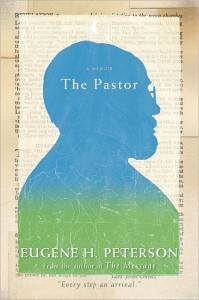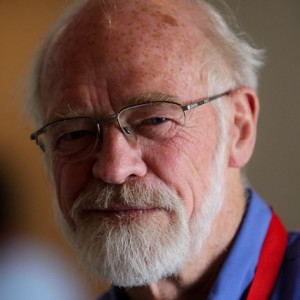 Eugene Peterson, the author of the Message, published this year a memoir of his 25 plus years of pastoral ministry titled The Pastor. It might very well be my favorite book I read this year. It is is one I’m recommending whenever I talk to pastor friends. I just had a friend text me this morning that he started reading it because of my recommendation and was finding it helpful and inspirational.
Eugene Peterson, the author of the Message, published this year a memoir of his 25 plus years of pastoral ministry titled The Pastor. It might very well be my favorite book I read this year. It is is one I’m recommending whenever I talk to pastor friends. I just had a friend text me this morning that he started reading it because of my recommendation and was finding it helpful and inspirational.
And just yesterday I was having coffee with one of my best friends who pastors a church in a Chicago suburb who I hadn’t seen in quite a while. He needed some encouragement. Pastoral ministry is tough, lonely, and consuming. Pastors are pulled in so many directions at once. There are so many voices demanding attention. There are strategic plans, dysfunctional staff, broken people and, yes, the sermons to prepare. Peterson is just the antidote for the worn out pastor. If you’ve not read it. Buy for yourself or for a pastor friend as a Christmas gift.
Peterson’s vision of pastoral ministry is so refreshing. I’ve been reading it in small increments over the course of probably 6 months. I’m a few chapters from being done with it. The chapters are short and it is easy to dip in and out. Truth be told, I am actually listening to it, along with a few others, on my commute back and forth to North Park which takes me about an hour (I have a paper copy too!).
 It has been just right book for me at the right time. Over the course of this year I’ve been wrestling with God over my own pastoral identity. “Am I a pastor?” I’ve asked often. I used to think so, but I put my pastoral identity aside for a while and have not been so sure I want to take it back. Peterson’s book has helped me process this question and answer it affirmatively.
It has been just right book for me at the right time. Over the course of this year I’ve been wrestling with God over my own pastoral identity. “Am I a pastor?” I’ve asked often. I used to think so, but I put my pastoral identity aside for a while and have not been so sure I want to take it back. Peterson’s book has helped me process this question and answer it affirmatively.
Peterson has re-imagined the pastoral vocation which has freed me to embrace it again. He sought to be a contemplative pastor. His vision of pastoral ministry is captured by words like presence, substance, depth, patience, and prayerful sensitivity. This is what I seek.
One excerpt from the book I’d like to share is Peterson’s reflection on a statement by John Henry Newman, “The people of Birmingham also have souls”. Newman, in the middle of the 19th century, left a prestigious post in Oxford to found a school for boys in the industrial city of Birmingham.
The clause challenges the tendency in me, as it did Peterson, to evaluate people based on things other than their innate value as souls God created whom he has entrusted to me. Being dissatisfied with the people God has given you to shepherd because they are not like you was an attitude of which I needed to repent. In Peterson’s words:
You don’t have to be an Oxford don to have a soul; you don’t have to be interesting to have a soul; you don’t have to have leadership potential to have a soul. I was rebuked out of my fantasy. Souls. If Newman could do it, I could at least try. Birmingham souls. Suburbia souls. I needed to renew my conversations with Newman, cultivate a way of understanding these men and women in my congregation in terms of who they were, not in terms of how they either interested or bored me, not in terms of what I could make of them – but souls. Which I did (225).











